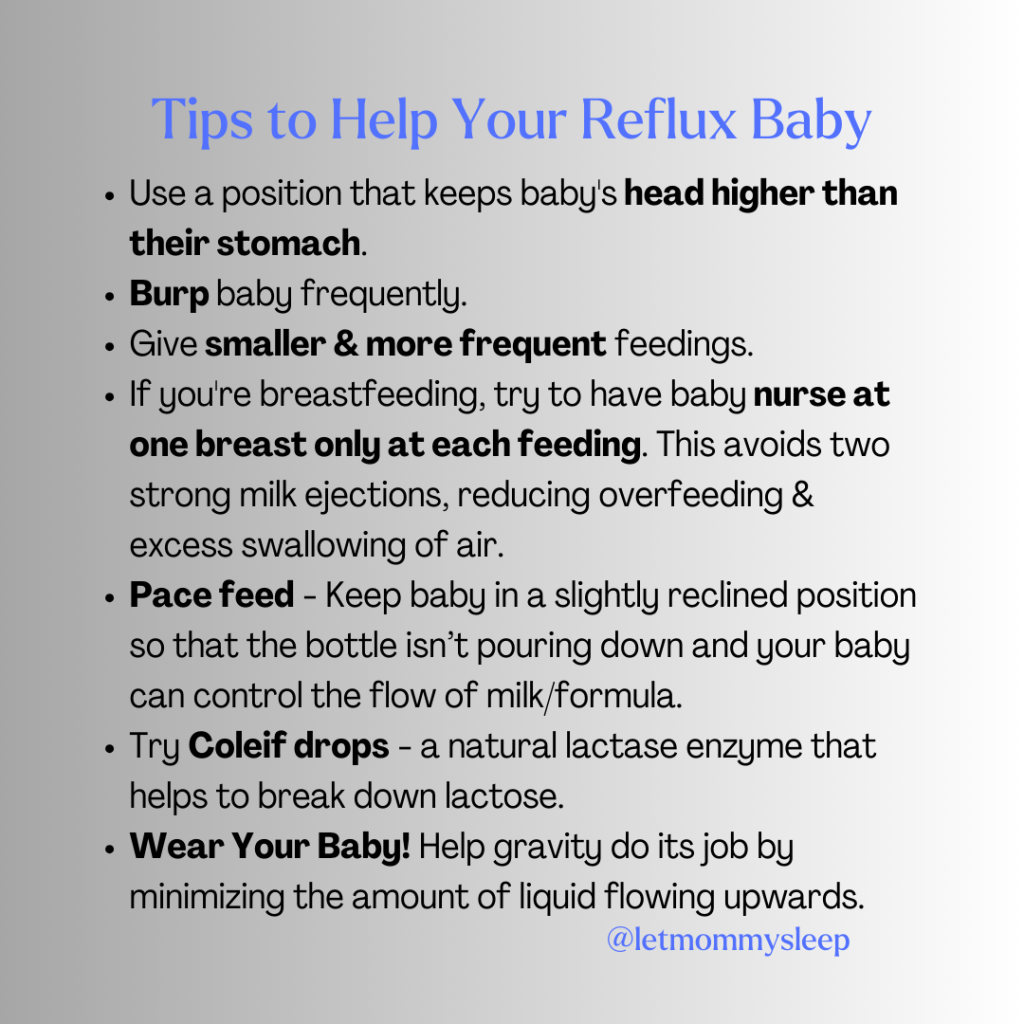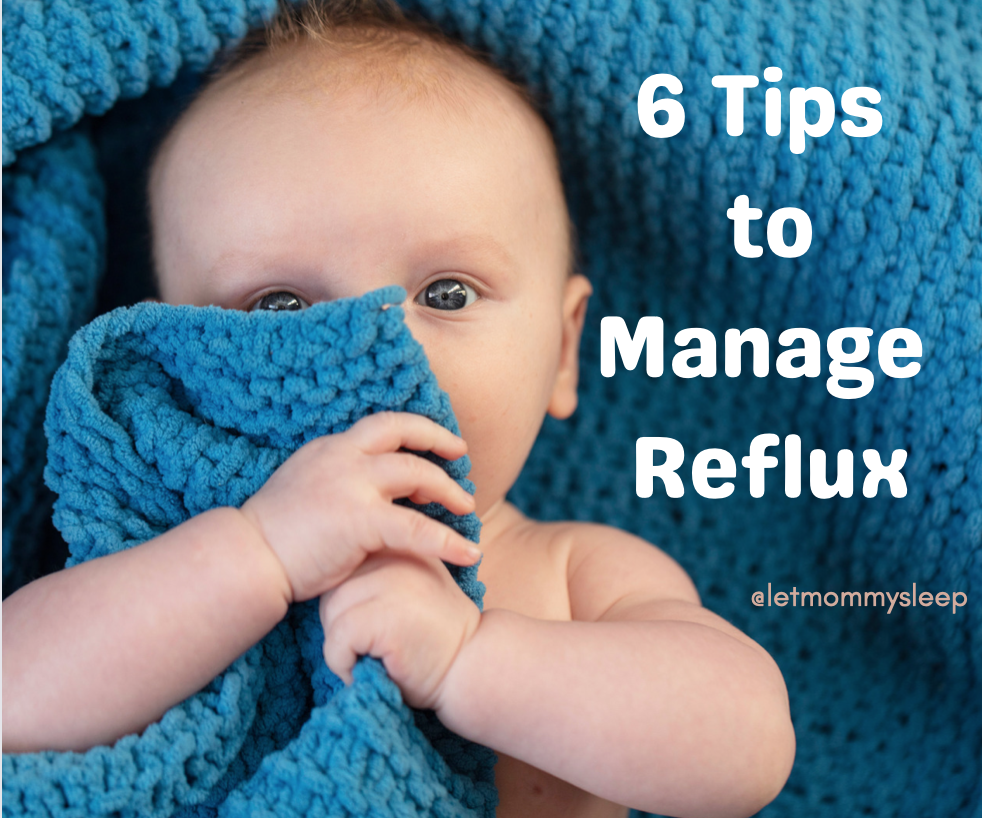6 Easy Tips to Help Your Reflux Baby
updated, November 12, 2023 – To help newborns and infants with reflux, we need to first understand what reflux is and then find comfort techniques. Reflux is a backward flow of the contents of the stomach into the esophagus that causes heartburn. Our team of night nannies presents advice to help here, with 6 Easy Tips to Help Your Reflux Baby.
- Keep baby elevated
- Burp frequently
- Small feeds
- Try paced feeding
- Coleif drops
- Wear your Baby
Reflux is one of the most common conditions newborns face and is often caused by the esophageal sphincter valve not being fully developed. This causes milk to come back up the esophagus through the throat and causes baby to spit up and vomit. Reflux can be upsetting, alarming, and painful to our babies! When the contents of the stomach come back up, it is usually mixed with some stomach acid, which creates a burning sensation.
While the only true remedy for reflux is time, there are some techniques to help keep your baby comfortable during and after feeding.

6 Easy Tips to Help Your Reflux Baby:
1. Keep your baby elevated while feeding. Whether breastfeeding or bottle feeding, use a position that keeps baby’s head higher than their stomach. Gravity helps hold contents in the belly, and reduces the amount of spit up. Also, be sure not to place your baby in a spot where they can easily slide down because this could put pressure on the belly and force contents back up.
2. Burp frequently during feeding. As you might have guessed, burping helps keep air out of the belly so try to minimize those air bubbles. Air or gas can force milk back up the esophagus, causing pain and discomfort.
3. Have smaller and more frequent feedings. When baby is too full, the full tummy can put pressure on the sphincter valve forcing baby to spit up. This can lead to pain and possibly choking, so slow, smaller feeding sessions are recommended.
If you’re breastfeeding, La Leche League recommends trying to have baby nurse at one breast only at each feeding. This avoids two strong milk ejections, therefore reducing overfeeding and excess swallowing of air. Also, leading sources in breastfeeding including LLL and KellyMom agree that in general spicy foods do not contribute to infant reflux.
4. Pace Feed. For bottle fed babies, conventional thinking tells parents to keep the bottle nipple full of milk or formula. This way air doesn’t get into the nipple and then into your newborn or infants tummy. However, the technique of paced feeding has shown to be more effective in minimizing reflux and pain. As Jordan Stubblefield, CLC and owner of Let Mommy Sleep Central New Jersey says, It’s not so much air intake as it is pacing the baby! Pace feeding helps to not overfeed by allowing baby to take breaks when they want, and following babies cues.
Here’s how to pace-feed:
- Keep baby in a slightly reclined position so that the bottle isn’t pouring down and your baby can control the flow of milk/formula.
- Let baby pull the nipple into his mouth. Once latched, keep the bottle just above horizontal.
- Continue feeding this way. This allows baby to control the flow of milk better without taking in air. This also helps your baby to feed at their own pace, which keeps them more comfortable.
5. Try Coleif drops. Some babies have reflux not only due to immature sphincter valves, but because they have trouble digesting lactose in milk. This can lead to bloating, gas, discomfort, and a lot of crying. Coleif is a natural lactase enzyme that helps to break down lactose in an infant’s breast milk or milk-based formula. (not sponsored, just like the product!)
6. Wear Your Baby! Carrying baby in an upright carrier helps gravity do its job by minimizing the amount of liquid flowing upwards. Less liquid = less pain. Baby wearing also reduces muscle tension in baby as they can completely relax when being snugly carried by you.

Is Reflux More Common in Preemies and Twins?
The only cure for reflux is time, as newborns and infant systems may need a few months to fully develop. Because twins are often born prematurely they have a higher risk of experiencing GERD or reflux. Additonally, preemies who have spent time in the NICU may have other issues compounding digestive challenges.
For more tips on keeping baby comfortable check out 10 Ways to Calm a Fussy Baby. You can also ask our team of night nurses and postpartum doulas any questions on Instagram!
Categories
- Archives
- Baby Sleep Advice
- Expert Guides
- Hiring a Night Nanny
- Infant Safety
- Postpartum Health
- Twins & Multiples
